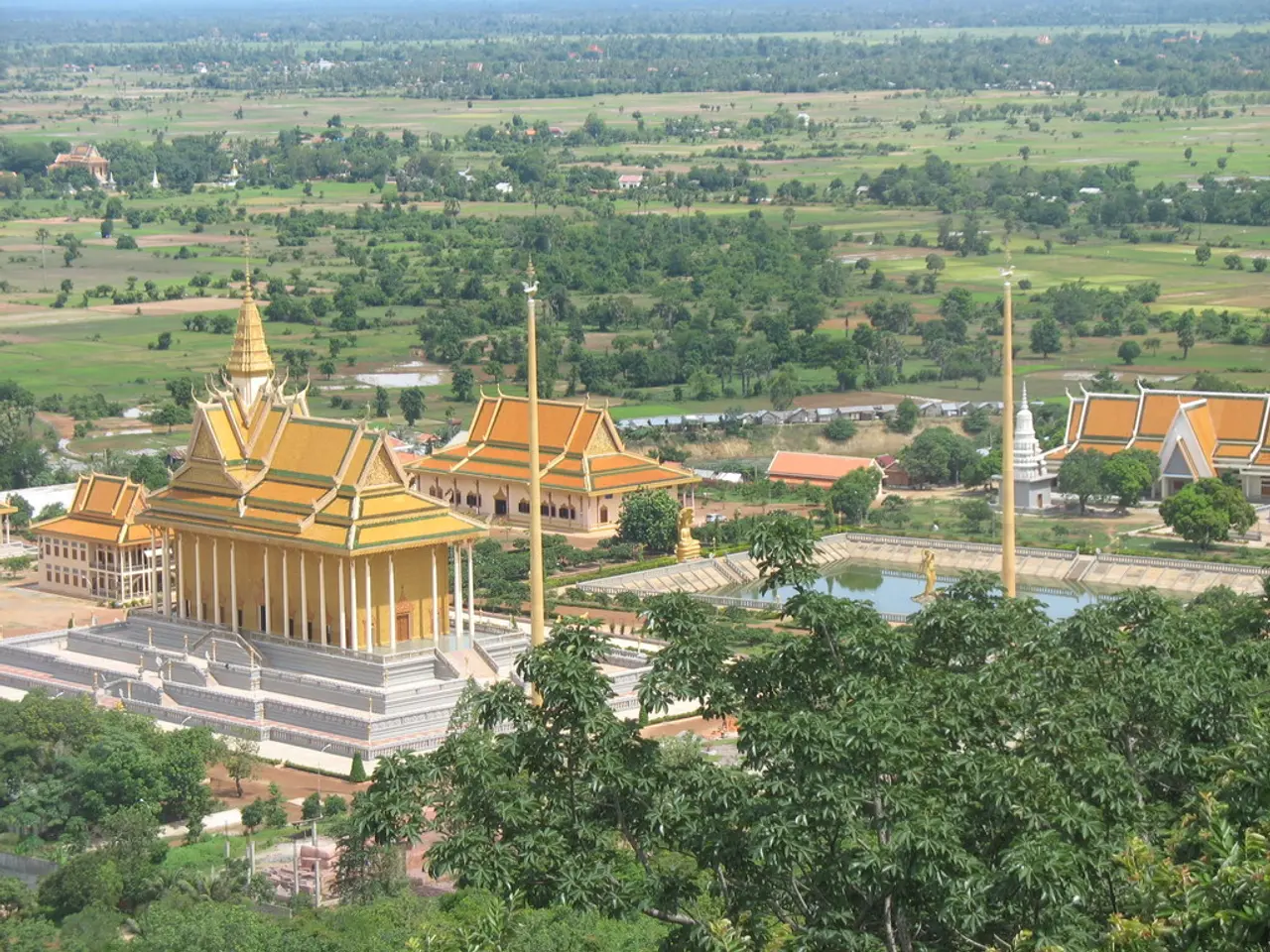"Ma Ying-jeou advocates for respecting the wishes of Taiwanese citizens"
Fresh Take:
In a provocative statement during his latest visit to China, former president Ma Ying-jeou boldly advocated for a "peaceful and democratic unification" between Taiwan and the mainland. At a gathering in Gansu province, he stressed the significance of respecting the will of the Taiwanese people, stating that "peaceful" means eschewing force or threats, while "democratic" equates to acknowledging their desires.
Ma, a Chinese Nationalist Party (KMT) member who served as president from 2008 to 2016, has consistently advocated for enhancing cross-strait relations over the years. This cultural and academic exchange, as part of his latest trip to China, has generated criticism from Taiwan's Mainland Affairs Council, which urged him not to act as a tool for Beijing's united front efforts targeting Taiwan.
China's Taiwan Affairs Office Director Song Tao responded to Ma's remarks by asserting that Taiwan belongs to all Chinese people on both sides of the Strait and that the future of Taiwan must be decided collectively by all Chinese citizens across the Strait. Song reaffirmed Beijing's stance opposing Taiwanese independence and emphasized the need for Taiwan to adhere to the "one China" principle and the "1992 consensus."
In Ma's vision, cross-strait affairs concern the relationship between two authorities governing parts of one China. He advocates for moving toward peace, integration, and cooperation while avoiding war, emphasizing the importance of genuine dialogue and the bonds shared by people on both sides of the Taiwan Strait. His proposal includes signing peace agreements, building mutual trust, and increasing cultural and economic exchanges under the framework of the 1992 Consensus.
Unfortunately, the Democratic Progressive Party (DPP) does not share the same opinion. They firmly reject the 1992 Consensus and any notion of "one China" that includes Taiwan, believing it to be a construct that favors the Chinese Communist Party's united front strategy and a threat to Taiwan's democracy and sovereignty. The DPP government has expressed regret and criticism over Ma's recent speeches, which they deem to be undermining Taiwan's position and legitimacy.
As a result, the current state of affairs splits Taiwan's major political camps. While Ma Ying-jeou and the KMT believe the 1992 Consensus is the foundation for dialogue and peaceful relations between Taiwan and China, the DPP outright rejects this consensus and resists any political framework that involves Taiwan as part of "one China."[1][2][3][4]
- The debates surrounding Ma Ying-jeou's proposal for peaceful unification between Taiwan and the mainland have rekindled discussions about policy-and-legislation and politics, with war-and-conflicts and general-news outlets covering the implications of his vision on cross-strait relations, particularly given the Democratic Progressive Party's resistance.
- Amidst the ongoing migration of ideas and perspectives between Taiwan and China, the polarizing stances on the 1992 Consensus have been a prime focus, shedding light on the significant role of policy-and-legislation and politics in shaping the future of Taiwan, especially as it relates to the questions of war-and-conflicts and immigration.








